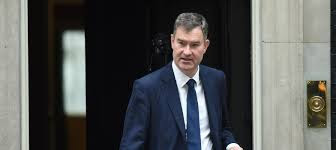 |
| Whoever said that lightning never strikes the same place twice? Me, it’s struck four times. Though on the first three occasions, I may have been a bit to blame |
Ironically, on this occasion I feel entirely blameless. On the others, I may well have contributed a little to my own discomfiture.
The first time, I probably made it too obvious that I had nothing but contempt for an incompetent at the top of the company, not weighing enough the fact that he was an old friend of the owner and the godfather of at least one of his children. Being more polite might not have saved me, but not being polite enough certainly made sure I was buried.
The second time, I was altogether too keen on transforming our rather lousy main product into something we could be proud of. But it really was terribly bad and the cost of improving it much too high. The owners’ aim was to show a profit, sell the company, make a lot of money, and forget about the quality of the product. They were probably right, because after a wave of redundancies they did just that. The product remained lousy and has now disappeared into well-deserved obscurity – I don’t think anyone’s using it any more – but the money’s real and in the shareholders’ bank accounts.
The third time, my division’s chief was one of those glad-handing incompetents, always ready with a smile, a cheerful word and an encouraging thought, but who presided over an organisation that set itself ridiculous targets that it systematically failed to meet. I should have gone several months earlier, but instead I just coasted, doing far less work than I would have had I been able to work up any enthusiasm, until I hit the buffers of redundancy.
This time, though, it was the reverse. I worked hard, and the work went well. I built a little team, seven strong, with representatives in seven countries on three continents, though most of them in Europe. They were great people, an awe-inspiring mix of clinicians and sales people and customer support specialists, who bounced ideas off each other to produce still better notions and then, and this is quite unusual, put them into practice.
Every single one of them spoke at least two languages, some more.
They were – are – talented, intelligent, enthusiastic. Not by accident. My boss, certainly the best I’ve worked for in my long career, spent time with me making sure we had the right people, and freed ourselves of others who were just as bright and talented but showed that our type of work ultimately didn’t suit them.
The team never stood still either, by which I don’t just mean they were always working, but that they were always looking for the next way to work better. Right at the end, we were beginning to explore a completely different way of selling the product which, I believe, would have been far more successful. It’s a tribute to the team’s approach that the various sales teams with which we were working reacted with great enthusiasm to these ideas for change.
This time, I’d done nothing to attract the baleful god of lightning to strike me down. This time, it was merely cold accounting: we were expensive and that looked bad in a profit and loss statement. So the axe fell on seven of the eight of us, including me.
I won’t pretend that there’s no pain in suffering this fate. Redundancy feels like rejection, of being regarded as of little worth, and that hurts. It would also have been satisfying to work on a few more years as I planned. On the other hand, my soon to be ex-colleagues have been uniformly supportive in their comments to me, which certainly mitigates any pain. Above all, I’m happy to retire, especially when leaving on a high. And a high it’s certainly been.
The last nearly three years have been the best of my working life. I’ve had the best boss, and the best colleagues, working on the best product. I have absolutely no complaints about any of that, and I’m simply grateful to have had the chance to work in that environment.
That’s another of the reasons I don’t even want to look for another job. Even if I found one, it would be a let-down.
Indeed, I’m even going out on a high within the high. My last presentation to a customer was exactly the kind I’ve always longed to give. It was well-received, but I gave it on content I’d known little about the day before, until one of my team members briefed me on it. She explained what I needed to present, how I should present it, and the medical rationale behind it.
It was another powerful example of the value of teamwork. I was covering her while she was at another meeting. And she gave me the material I needed to do it well.
I have a great launchpad from which to head into retirement. I look forward to it as there are so many things I’ve always wanted to do and couldn’t. Now I can.
Watch this space.
 |
| Sunset in our local woods: not a bad place to spend time And not a bad metaphor for where I want to head next |















